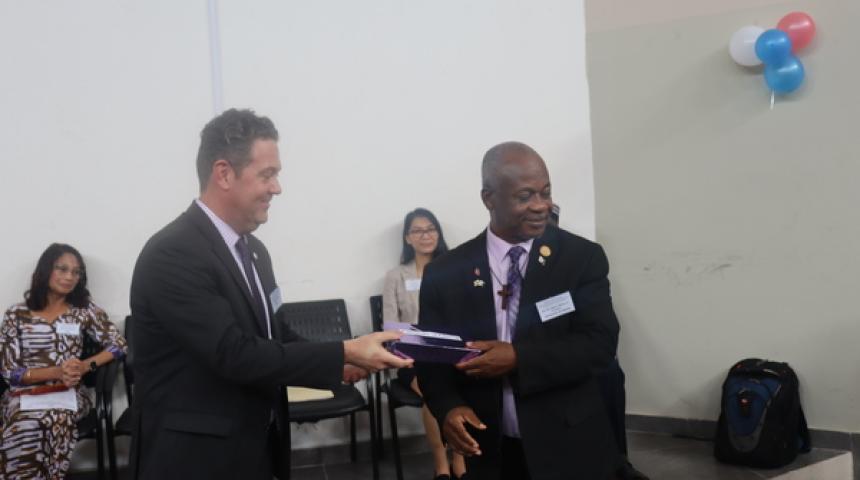USAID Liberia has formally launched a project that would train more than 3,000 teachers in childhood education and primary education.
However, the project, which is for five years, would also help thousands of Liberian children have a stronger and more quality educational foundation as more qualified teachers would be available.
Accordingly, USAID is expected to implement the project through its Transforming the Education System for Teachers and Students (TESTS) Activity in Liberia.
The project is providing support to the Ministry of Education (MOE) and the National Commission on Higher Education (NCHE) to improve the quality of targeted Liberian early childhood education and primary education teachers’ instructional delivery.
TESTS is also working with the MOE, NCHE, and at eight faith-based, public, and private universities and colleges, including the Adventist University of West Africa, African Methodist Episcopal University, Cuttington University, Grand Bassa University, LICOSESS College of Education, Lofa County University, Nimba University, and the University of Liberia.
Also, as part of the activity, TESTS has developed an online resource to assist University (College) of Education faculty members as they help their students pursuing associate and bachelor’s degrees in early childhood education and primary education succeed on their learning journeys — from enrollment to demonstration school performance to graduation.
The online resource, known as the “Learning and Tracking Portal,” contains faculty and language and mathematics assessments and complementary microcourses, student course packets and readings, the Student Plan of Study Guide, and practicum observation tools that faculty members and teacher aspirants can use to support the teacher aspirants in their academic progress.
Other programs in the portal are: Teacher Aspirant Rapid Intake Assessment, Course Materials, Study Plan and Study Guide, Practicum Tracking System, and others.
USAID-Liberia is expected to train through full scholarship, more than 3,000 students pursuing associate and bachelor’s degrees in early childhood education and primary education at eight faith-based, public, and private Universities.
Besides sponsoring teacher aspirants, about 5,000 teacher aspirants will benefit from the online resource [Portal] curriculum.
Accordingly, the Learning and Tracking Portal is usable offline via computer, tablet, or phone, with Internet access needed only for updates, and it is an example of an intelligent risk in technology use and system improvement, informed by current successes in Liberia. The Learning and Tracking Portal was developed on the Moodle platform.
Rory Donohoe, Deputy Mission Director of USAID – Liberia said the launch of USAID TESTS is a great opportunity for aspiring teachers benefiting from the TESTS activity to have access to resources that will foster a quality learning experience in early childhood and primary education at the partner higher education institutions.
Donohoe stated that faculty members and students will be able to use the tablets and the Learning and Tracking Portal to access their course materials.
He added that TESTS is distributing more than 350 tablets for the Colleges of Education at partner higher education teacher training institutions to help teacher aspirants and faculty members access the resources on the Learning and Tracking Portal.
Technically, the USAID TESTS Program began in 2021. It is expected to end in 2026. It may be extended.
Prof. E. Lama Wonkeryor, Director General, NCHE, and Rev. Dr. Julius Nelson, Jr., President of the University of Liberia, thanked the Government and People of the USA for the TESTS Project and their continued support of Liberia.
Mr. Alexander Duopu, Deputy Minister for Instruction, Ministry of Education, on behalf of the People and Government of Liberia, also thanked USAID for the scholarship, tablets, and technology.
The launch on Thursday was attended by administrations, faculty members, and students from the eight universities or colleges, including government officials, the USAID Deputy Mission Director, staff, and well-wishers. Curtesy: Dailly Observer online

